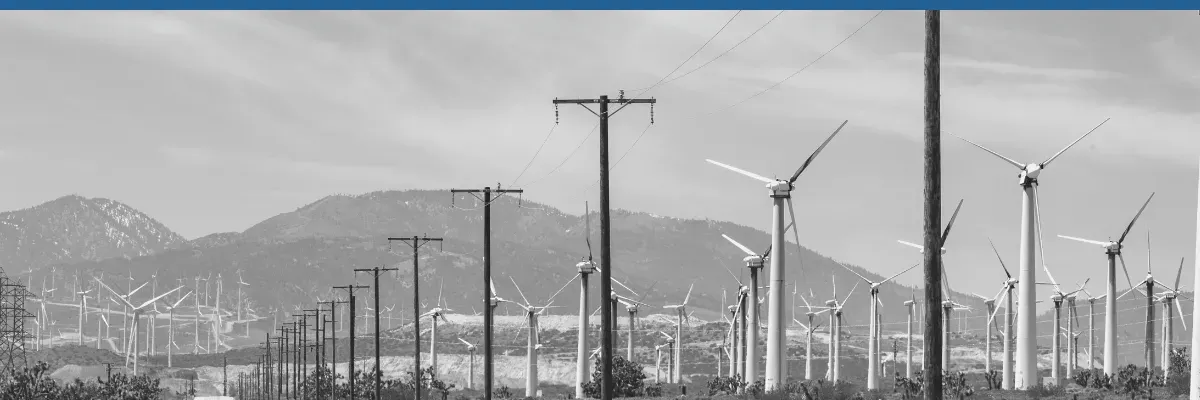COP26: What’s expected
Anticipation for the 26th annual Conference of Parties to the UNFCCC (COP26), an international summit where countries and stakeholders discuss climate policy, is building. This year's conference takes place in Glasgow and is scheduled to run from 31 October to 12 November.
COP tends to face grandiose expectations by an audience that wants to see big headlines, but in reality, COP tends to be as much about agreeing on finer policy details as it is on committing to big-picture climate measures.
This year's event is seen as particularly critical because several previously agreed climate pledges were set to have come to fruition by this point. At the same time, global leaders are under pressure to address high energy prices—even as this conference pushes them to meet still more ambitious climate targets.
This year's COP seeks to make progress on three key issues:
1. Finalising the Paris Agreement rulebook, particularly Article 6
The bulk of the Paris Agreement’s rulebook was agreed at COP24. But detailed rules relating to Article 6—the use of market and non-market tools as part of compliance strategies—have been difficult to establish. In essence, this is about the role of carbon offsets, under which abatement made in one country is paid for and used for compliance by a different country.
Agreeing the detailed rules for Article 6 would pave the way for countries to use international offsets to meet national climate targets, and it could provide the foundation for a new UNFCCC international carbon offset mechanism for use under the Paris Agreement. It would let policymakers use international offsets for compliance in domestic trading schemes. This would allow the offset market to scale up with private money and commoditise itself in ways unlikely to happen without such an agreement in place.
The rule would also stimulate a larger international market for offsets by introducing sovereign buyers to the mix. While we do not think the EU will allow offset use in its ETS—at least not before 2030—the airline industry’s offset scheme (CORSIA) needs such rules to be in place for it to have any degree of environmental integrity.
2. Agreeing on financial support provisions to developing countries
COP15 established that OECD countries would mobilise $100 billion every year in climate finance by 2020 to help developing countries adapt to and mitigate further climate change. However, the conference did not formalise details on how individual countries would pay for the scheme, instead relying on each country's own financial pledges.
COP26 will first look to ensure that countries adhere to their existing pledges, and formal negotiations are expected to start on post-2025 finance goals. With OECD nations not yet having stumped up $100 billion for the fund, there seems to be a significant gap between what the developing world wants and what the developed world will offer.
3. Encouraging countries to advance net-zero targets
The UNFCCC will continue to call for more ambitious Nationally Determined Contributions (NDCs) at COP26 as most countries are still quite far from delivering on their Paris agreement goals. The NDCs set out a country’s targets for reducing greenhouse gas emissions. Countries will face pressure to create both concrete policies and long-term strategies that will deliver climate neutrality—particularly for G20 nations by 2050.
Australia and Saudi Arabia announced new pledges to reach net-zero emissions by 2050 and 2060, respectively, and China recently released a strategy to achieve a net-zero target that reaffirms previous targets and policies. Most countries tend to announce major revisions prior to these conferences to generate maximum press coverage, so this week could see more announcements than we get during the event.
Big questions on rising energy costs
Global fossil fuel demand is responding far more slowly than supply to growing environmental concerns. Economies recovering from the effects of Covid-19 are pushing energy demand up along with them. A growing world population and expanding middle class will propel global energy consumption still higher.
At the same time, continuing underinvestment in fossil fuel supply will mean higher oil and gas prices in the coming years.
COP will pressure countries to take more action. However, if governments are serious about alleviating the most severe effects of climate change, the focus cannot just be on legislation that shifts supply. They must also tackle demand.
Read our recent views on rising energy costs in the Financial Times, where our Director of Research Amrita Sen offers a detailed take on the need to address fossil fuel demand in order to ensure a smooth and equitable energy transition.
The energy markets are going through a massive transformation. To access our research across various energy markets, write to us at contact@energyaspects.com or request your trial here.













